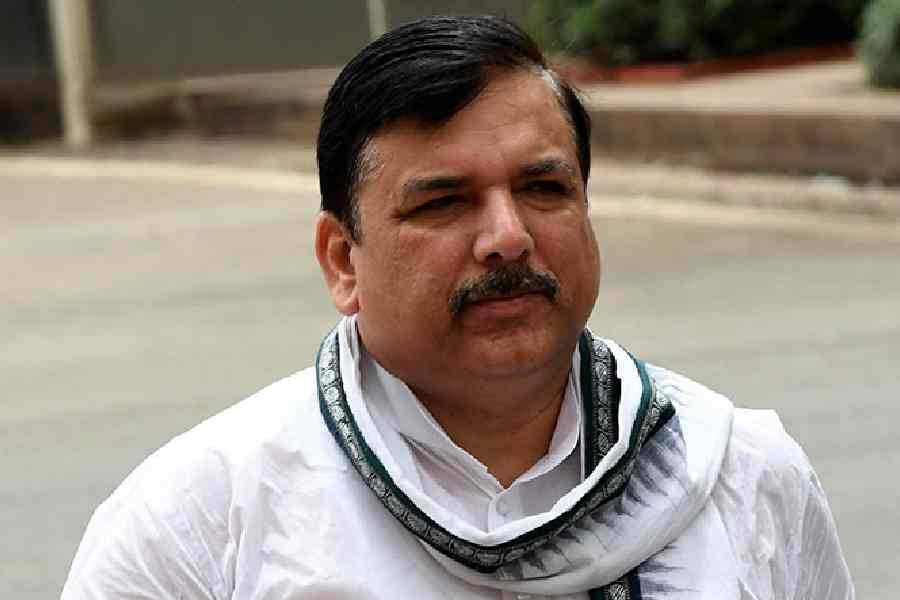The Supreme Court on Monday sought responses from the Centre and the Enforcement Directorate on AAP leader Sanjay Singh's plea challenging his arrest and remand in a money laundering case related to the alleged Delhi excise policy scam.
A bench of justices Sanjiv Khanna and SVN Bhatti issued notices to the Centre and the ED, asking them to submit their responses before December 11.
The bench ordered that if Singh files a petition for regular bail in the interregnum, then it should be considered independent of the observation made in the Delhi High Court's judgement dated October 20.
In its order, the High Court had refused to interfere with his arrest in the case, saying it could not impute a political motive to a premier investigating agency in the absence of material on record.
The apex court bench questioned senior advocate Abhishek Singhvi, appearing for Singh, as to why the AAP leader has not filed any plea for regular bail.
Singhvi replied that bail is not the appropriate remedy at this time and referred to Section 19 of the Prevention of Money Laundering Act (PMLA), which deals with the ED’s powers to arrest.
The bench said as per the high court verdict, Singh was given six pages of grounds of arrest.
Singhvi contended that he was referring to the ED's powers to arrest under Section 19 of the PMLA and the power of the magistrate to send the person to judicial remand under Section 167(2) of the CrPC.
Justice Khanna said that as per his understanding, bail jurisdiction is broader and it is up to Singh to file for regular bail.
"I don't think filing of bail application will deprive you from approaching this court. But, filing of bail application is up to the petitioner and nobody can push for it," Justice Khanna said while posting the matter for further hearing in the week commencing December 11.
Singh, who was arrested on October 4 in the case, had moved the top court challenging the High Court verdict.
In its order, the High Court had said that Singh's was not a "prima facie case of no evidence at all".
"At a premature stage when the investigation is at a nascent stage, this court does not find any ground to interfere at all with order of remand or arrest. Dismissed," the high court had said.
It further said that deciding whether a case is politically motivated essentially involves deciding whether an investigating agency was under the control of a political party, and it cannot decide the same without any material on record.
The ED's money laundering case stems from the Central Bureau of Investigation (CBI) FIR.
According to the CBI and the ED, irregularities were committed while modifying the now-scrapped Delhi Excise Policy 2021-22 and undue favours were extended to licence holders.
It is alleged that Singh played a key role in the formulation and implementation of the policy, which benefited certain liquor manufacturers, wholesalers and retailers, for monetary considerations.
After his arrest, the trial court had sent Singh to ED custody. He has been in judicial custody since October 13. A Delhi court on November 10 extended his judicial custody till November 24
Except for the headline, this story has not been edited by The Telegraph Online staff and has been published from a syndicated feed.











